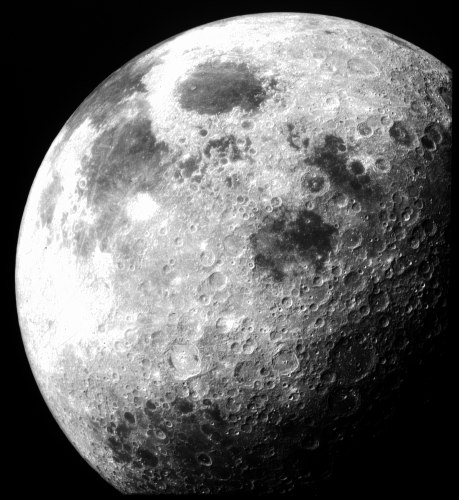This week, a team in Barcelona have announced that they have signed a launch service contract for a Chinese rocket to carry their lander to the moon.
The Barcelona Moon Team is taking part in the Lunar X-Prize, a Google-sponsored competition with an unprecedented $30 million payout for the winning team. The aim is to "stimulate innovation and create revolutions" by encouraging private missions to the moon, with the ultimate aim of creating frequent, inexpensive lunar trips, both for scientific and financial gain.
 Registration closed back in December 2010, and there are now 26 teams from all over the globe who are in the process of designing, planning, testing and fundraising for their own lunar missions. To win the huge sum, they need to be the first team able to send a robot to the Moon that is capable of travelling at least 500 meters and transmitting video, images, and data back down to Earth. The runners-up will receive a smaller, but not insignificant, $5 million prize. The Spanish team have also designed an extra 25Kg payload capability, which they will offer to universities, commercial or pharmaceutical companies as an opportunity to see what access to the moon could do for them.
Registration closed back in December 2010, and there are now 26 teams from all over the globe who are in the process of designing, planning, testing and fundraising for their own lunar missions. To win the huge sum, they need to be the first team able to send a robot to the Moon that is capable of travelling at least 500 meters and transmitting video, images, and data back down to Earth. The runners-up will receive a smaller, but not insignificant, $5 million prize. The Spanish team have also designed an extra 25Kg payload capability, which they will offer to universities, commercial or pharmaceutical companies as an opportunity to see what access to the moon could do for them.
Interestingly, the organisers of the Lunar X-Prize actually expect that the teams may ultimately spend more than the prize money in order to achieve their goal. They point out that teams in previous competitions, such as the DARPA Challenges, have been known to spend as much as 5 times the prize value in order to complete the task.
The original space based X-prize - the Ansari X-Prize, was awarded to the Tier One project for launching a reusable space plane known as SpaceShipOne into space twice within two weeks. The technological and engineering challenges met by the team, and their solutions, are now going into the rapidly developing space-tourism business, and the competition itself inspired the current Lunar X-Prize.
The lunar x-prize hopes to do the same - both by solving technological problems and by inspiring and educating the next generation of scientists and engineers.
The Barcelona Moon Team's announcement shows that the competition is hotting up, and moving on to the next stage, setting themselves up as the head of the pack.
Look out Moon - here they come!
References
- Previous Old dads bad for offspring's DNA
- Next How Massive can a Star be?










Comments
Add a comment